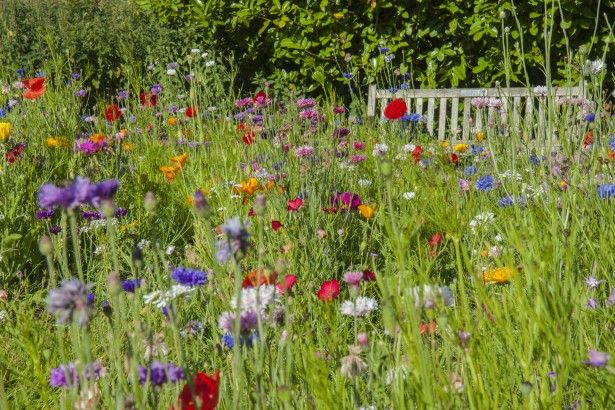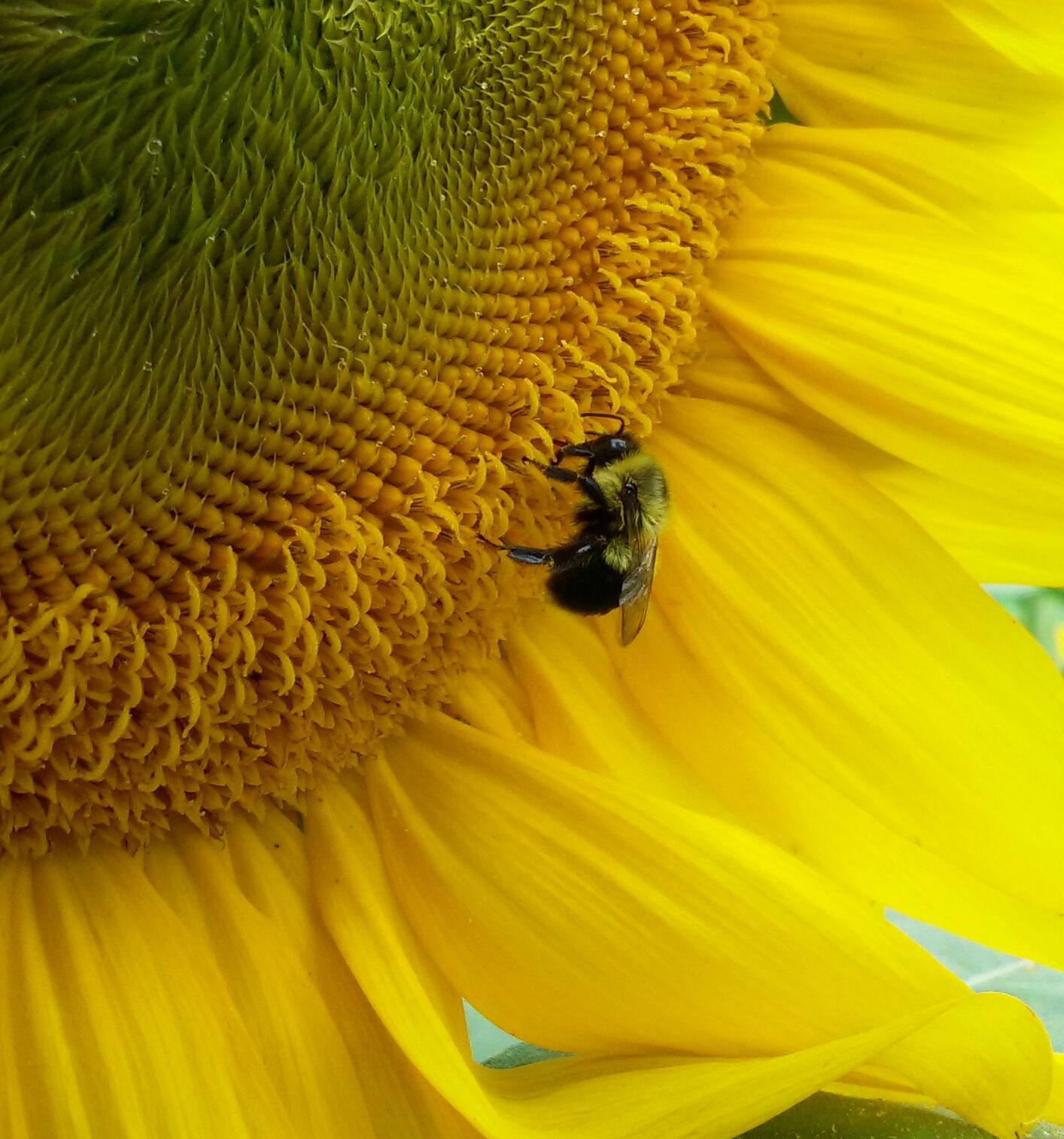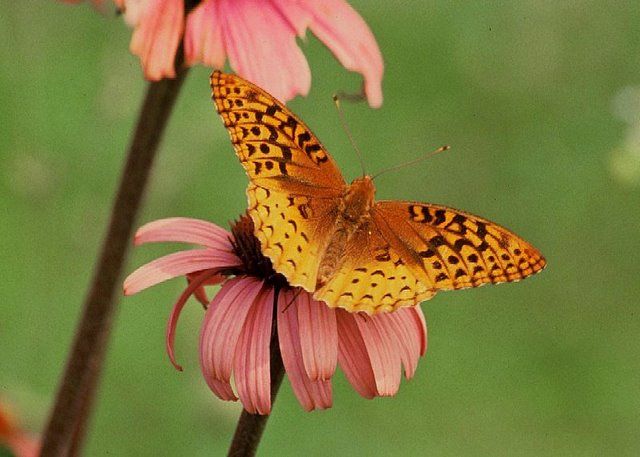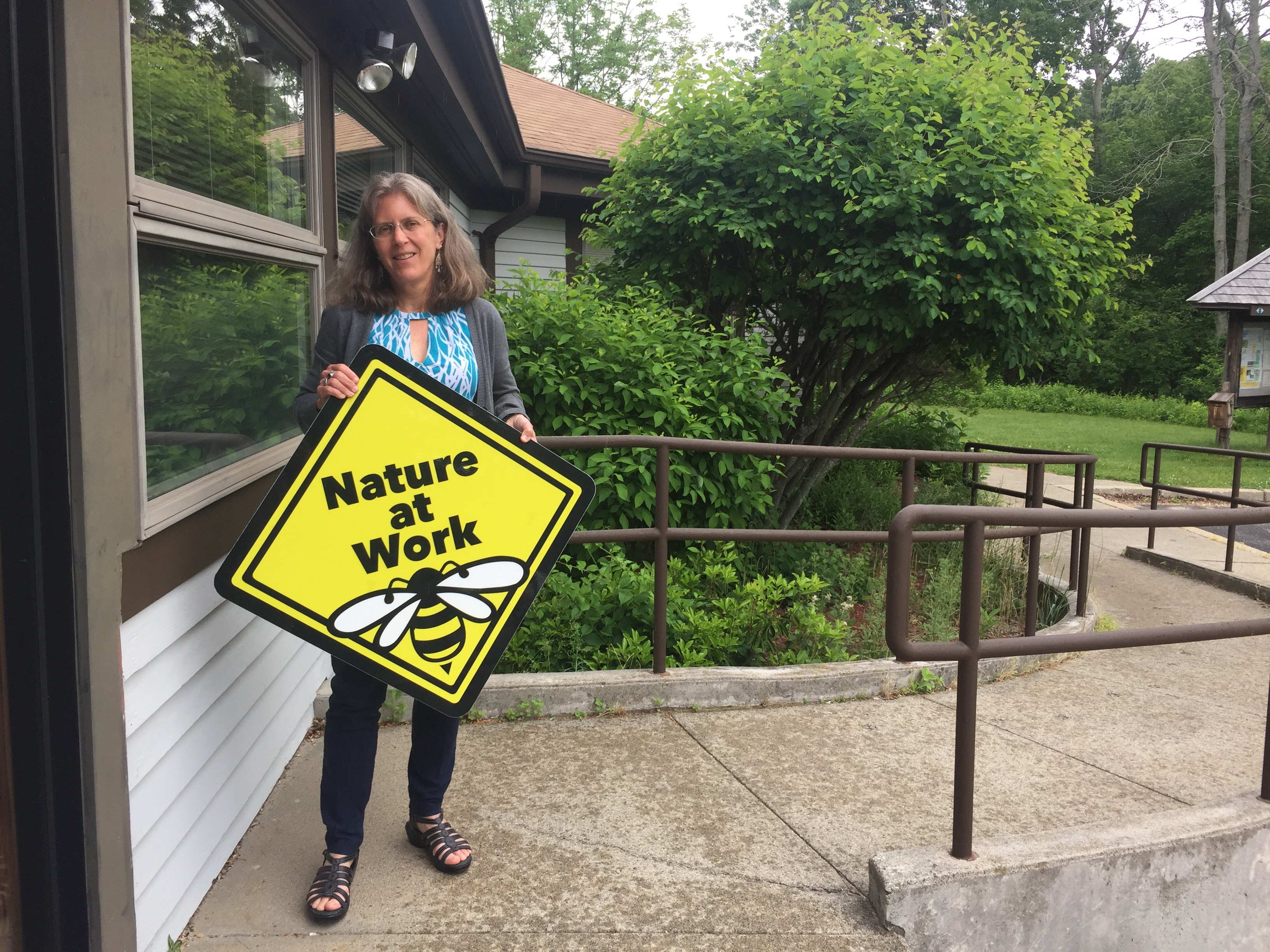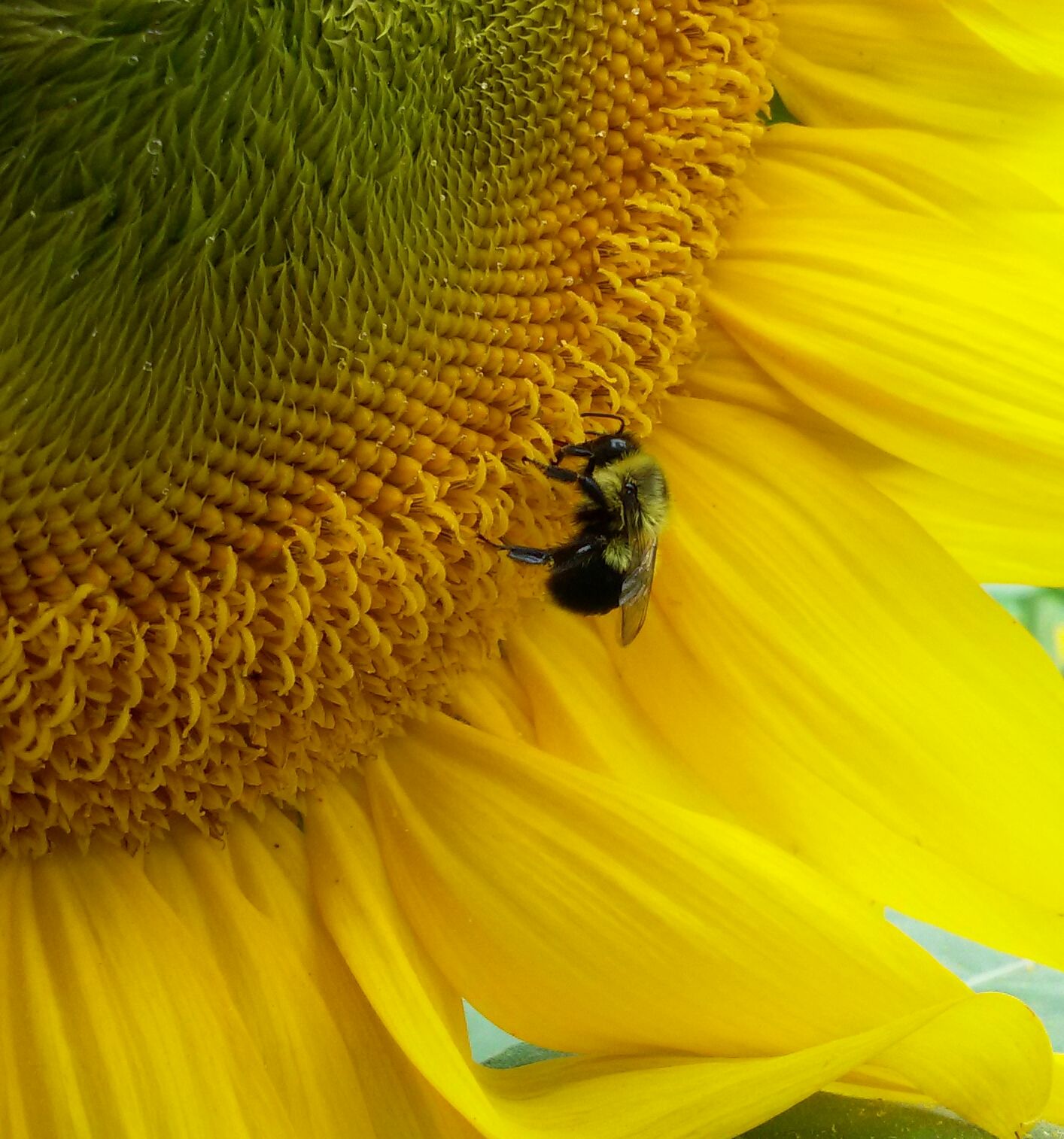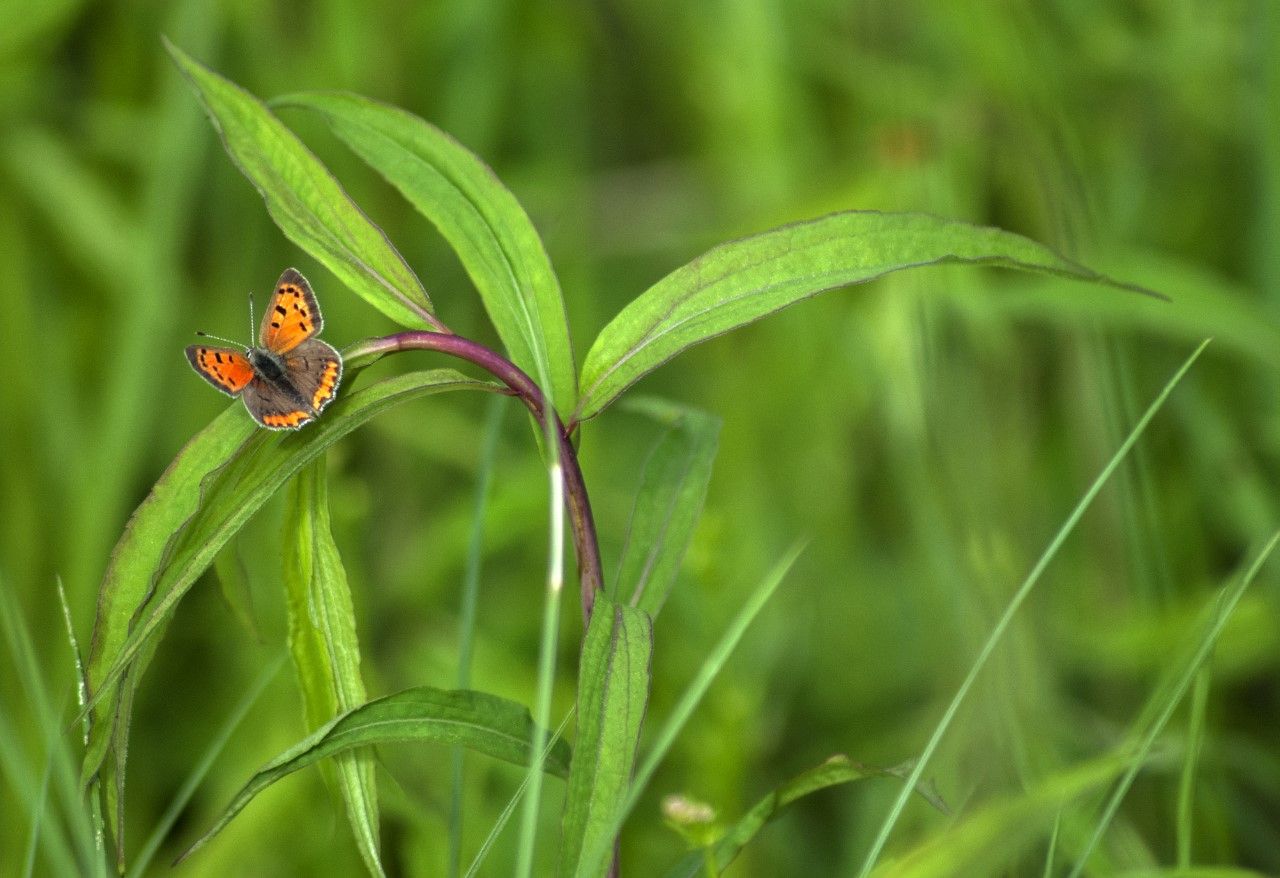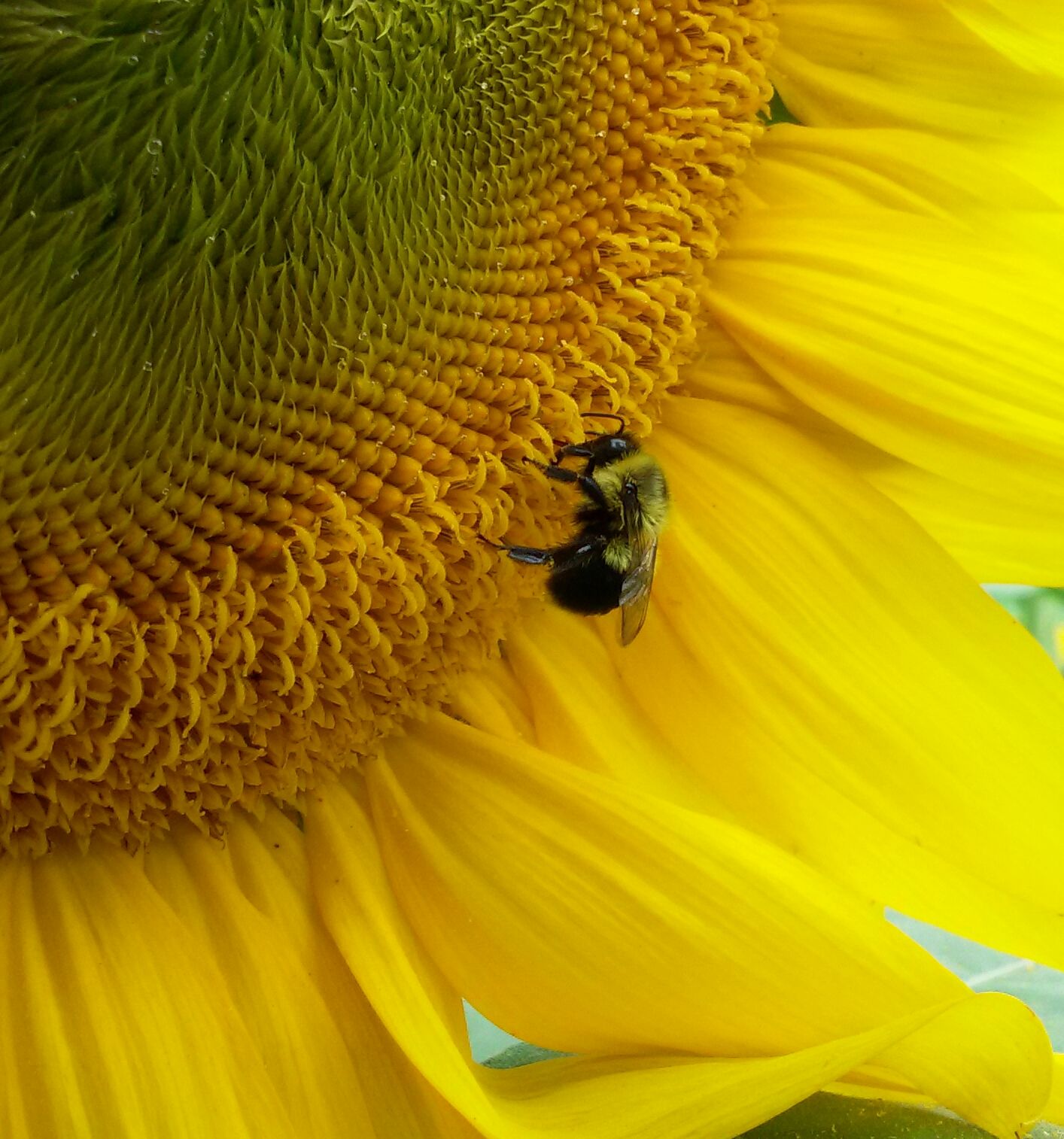

Pollinator News and Stories
Rhode Island businesses are no longer permitted to sell pesticides containing neonicotinoids to untrained users. You can continue to support pollinators by holding accountable local businesses that sell landscaping products.
Why should you care about bumblebees? Like many native bees and butterflies, bumbles are excellent pollinators and humans need pollinators to produce about two-thirds of the world’s food crops. No pollination, no seed development, no fruit, no vegetables. In this installment of the Newport This Week's "Nature in the Neighborhood" series, Audubon Senior Director of Education Lauren Parmelee talks about bumblebees.
Lawns are ecological deserts, creating a monoculture with little to no food for wildlife. Every garden is an opportunity for us to rethink our manicured yards and consider restoring habitat for native plants and wildlife. But where to begin?
Some scientists estimate that the monarch butterfly has declined by 85 to 95 percent in New England since the 1990s. In this installment of the Newport This Week Nature in the Neighborhood series, Audubon Senior Director of Education Lauren Parmelee reflects on the uniqueness of this endangered species and what you can do to help them.
Neonic Pesticide Regulation Bill Signed Into Law!
Rhode Island has officially made major updates to our pesticide regulations for the first time in more than a decade! Representative Kislak's and Senator Miller's bills (passed in the House on June 7 and Senate on June 14, respectively) will take harmful neonicotinoid pesticides out of the hands of untrained users. The legislation was signed into law by Governor McKee on June 27, 2022! THANK YOU to everyone who helped us advance these bills by contacting their legislators; our partner advocates; and to the bill cosponsors.
The case against harmful neonicotinoid insecticides grows as pollinator populations decline. Environmental groups, legislators, and supporters gathered on May 11, 2022, at the Roger Williams Botanical Center in Providence for a legislative breakfast and speaking event to rally support for legislation that would restrict the use of harmful neonicotinoid insecticides (neonics) in Rhode Island.
Connecticut, Maine, Massachusetts, and Vermont all regulate the use of neonicotinoid pesticides. It is time to pass this legislation to protect not only our pollinators but all Rhode Islanders. We need YOUR voice to help move this important bill forward!
Pollinators play a critical role in our ecosystems and agriculture. This year, thanks to legislation reintroduced by Representative Kislak and Senator Miller, Rhode Island has the chance to protect bees, birds, and butterflies from harmful pesticides. Read our Boston Globe op-ed, written by Audubon Senior Director of Policy Priscilla De La Cruz and The Nature Conservancy in Rhode Island's Climate & Energy Program Manager Sue AnderBois.
In this Issue: National Learn About Butterflies Day; Beach; Clean Water and Green Bond - thank you!; New Secretary of Commerce and Governor; At the Rhode Island State House; Northeast Canyons and Seamounts Marine National Monument. sign up to receive the Eagle Eye in your email inbox.
After years of inaction by the legislature on our top legislative priorities, 2021 is looking to be a HUGE year for Rhode Island's environment.
In this Issue: A Few Sustainability Tips to Kick off the New Year, Beach; Clean Water and Green Bond goes to the voters on March 2 - Please Vote YES!; The Great Backyard Bee Count; Climate Change Legislation at the 2021 Rhode Island General Assembly. sign up to receive the Eagle Eye in your email inbox.
In this issue: A Few Ideas for Making Your Holiday More Sustainable; Environment Council of Rhode Island’s Green Report Card; Rhode Islanders See Climate Change as a Top Priority; Things with Wings: Recent Highlights from the Xerces Society’s Bee City USA Initiative; Migratory Bird Treaty Act under attack by Trump Administration; Audubon’s Legislative Priorities for 2021.sign up to receive the Eagle Eye in your email inbox.
For wildlife. For pollinators. For the environment. | People are often reluctant to change manicured green spaces into wild spaces but filling the built environment with rain gardens and pollinator meadows will help us create more resilient communities and supports wildlife and pollinator.
This winter, don't forget to include plants for pollinators in your spring gardening plans! | An editorial by Audubon Senior Director of Policy Meg Kerr
Audubon Celebrates National Pollinator Week by hosting a Bee Rally in the State House and lighting up the dome in black and yellow. That big striped State House Dome will “bee” hard to miss in June!
Audubon Designs and Monitors Pollinator Habitat by Hugh Markey
From the 2018 Spring Report
The first batch of prototype 'Nature at Work’ pollinator habitat road signs have been printed! Through her seat on the Pollinator Working Group, Audubon Senior Director of Policy Meg Kerr has worked with the RI DOT to create these signs which will be displayed amongst pollinator-friendly plants along Rhode Island roads.
Audubon Celebrates National Pollinator Week by hosting a Bee Rally in the State House and lighting up the dome in black and yellow. That big striped State House Dome will “bee” hard to miss in June!
Audubon naturalists lead teams into the field to identify and record butterfly sightings. No experience is needed. This event is part of the North American Butterfly Association's annual survey of butterflies.
Come celebrate pollinators June 19th - 25th and help spread the word about how to protect them.
There is an increasing buzz about pollinators these days. But it’s not that sound in your garden as bees go about their business. Learn about what Audubon is doing to help our blossom-loving friends, what you can do at home and in your community and all about how you can celebrate National Pollinator Week with us!
Wednesday Morning Bird Walkers were hard at work on May 10th, creating a new pollinator garden at Audubon's Fisherville Brook Wildlife Refuge in Exeter, RI.
Time spent in nature is a buffer against the hectic pace of modern life. In an ever-changing environment, photographer Rufus Abdullah strives to preserve moments found in the natural world. Whether it is animal or plant life, his images are witness to his quest for serenity and balance.
Support Our Work
Your generosity will help sustain and grow our conservation, education, and advocacy efforts right here in Rhode Island!
Visit Us
Start exploring nearly 10,000 acres of natural habitat across Rhode Island and nearby Massachusetts.
Programs and Events
Get outside and learn about the natural world!

